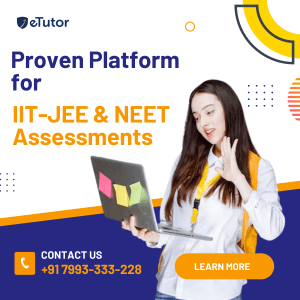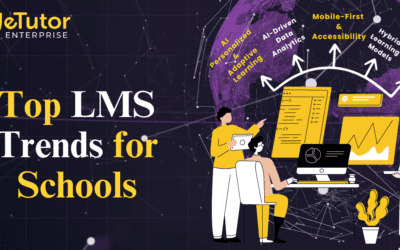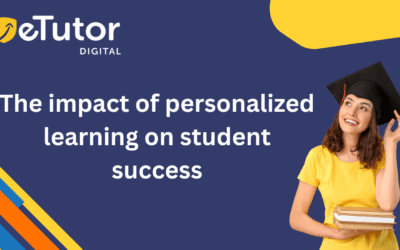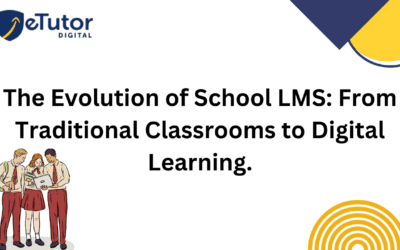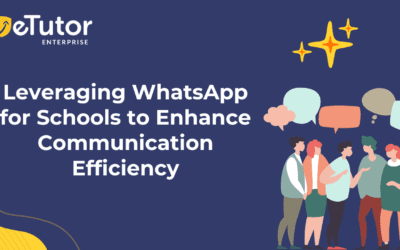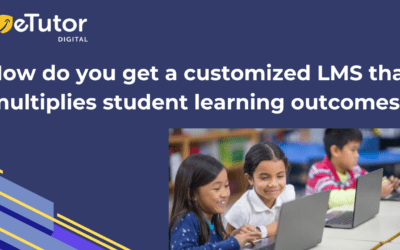LMS for Education Industry | Education LMS | eTutor
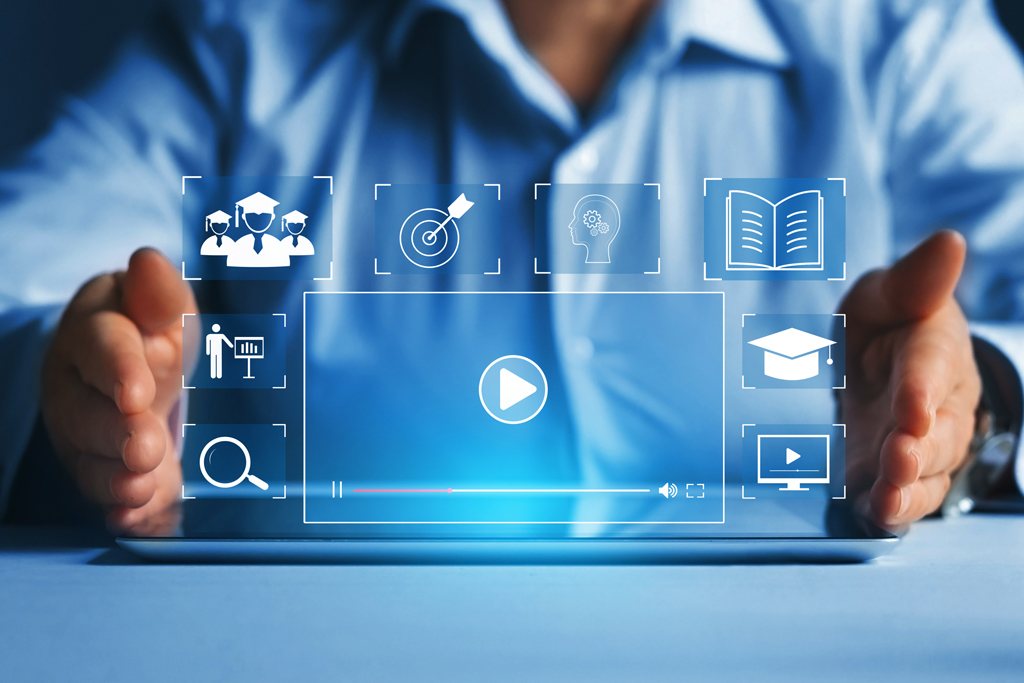
Introduction
An education Learning Management System is a digital platform that assists learners in pursuing a quality education. Though the traditional method of learning is effective, the students are facing many problems in the process of acquiring knowledge.
e-Tutor LMS is an AI-assisted platform that helps in nurturing the students, thereby effectively establishing student engagement and developing cooperation and communication between teachers, parents and students.
What is an Education Learning Management System (LMS)?
An education Learning Management System (LMS) is a software application created to assist in managing and delivering educational material and resources online.
E-tutor LMScan be implemented in K-12 schools, colleges, and corporate training programs. Due to the COVID-19 pandemic, many colleges and universities have turned to online learning, making LMS particularly helpful.
Top Features to Look for in an Education Learning Management System
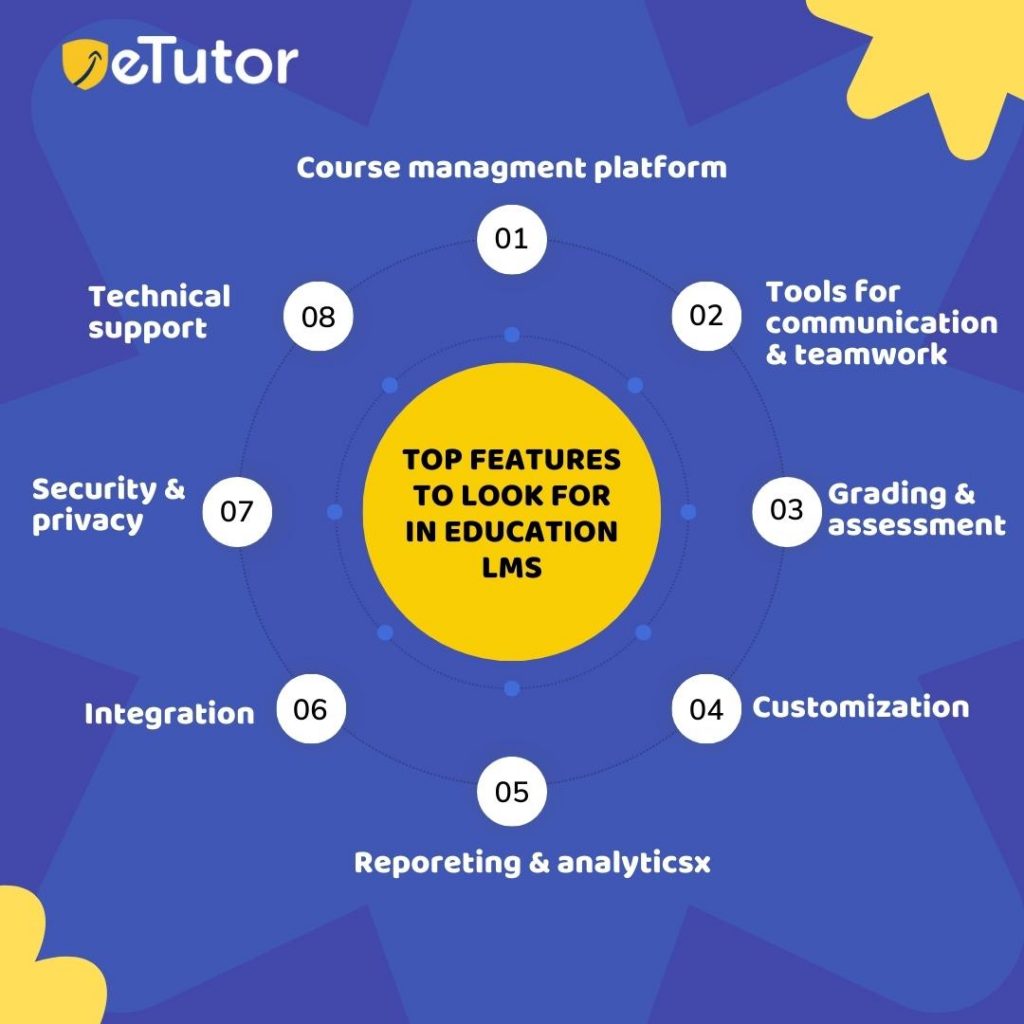
It’s crucial to consider your institution’s unique needs when choosing an education learning management system (LMS). Yet, many institutions place a high priority on a few basic features. The top qualities to search for in an LMS are:
Course management platform: The flexibility to upload content, take quizzes, and assign homework are just a few powerful capabilities an LMS should offer for developing and administering courses.
Tools for communication and teamwork: Look for an LMS with features like message boards, instant messaging, and video conferencing.
Assessment and grading: An LMS must give users the capacity to create, evaluate, and use quizzes and assignments to evaluate and grade students.
Customization: Search for an LMS which can be modified to meet the branding and requirements of your institution. It includes having the option to alter the user interface, the instructional materials, and the grading standards.
Reporting and analytics: A strong reporting and analytics system should be included in an LMS to help teachers and administrators monitor student progress and spot potential improvement areas.
Integrations: Make sure the new Learning management system is compatible and can be easily integrated into the existing platforms.
Security and Privacy: Ensure the LMS complies with industry standards and laws on security and privacy, such as FERPA and GDPR. Look for characteristics like secure hosting and data encryption.
Technical support: Support for technical issues is crucial while utilizing an LMS. Make sure the LMS vendor offers dependable and accommodating technical support.
Key Benefits of an Education Learning Management System
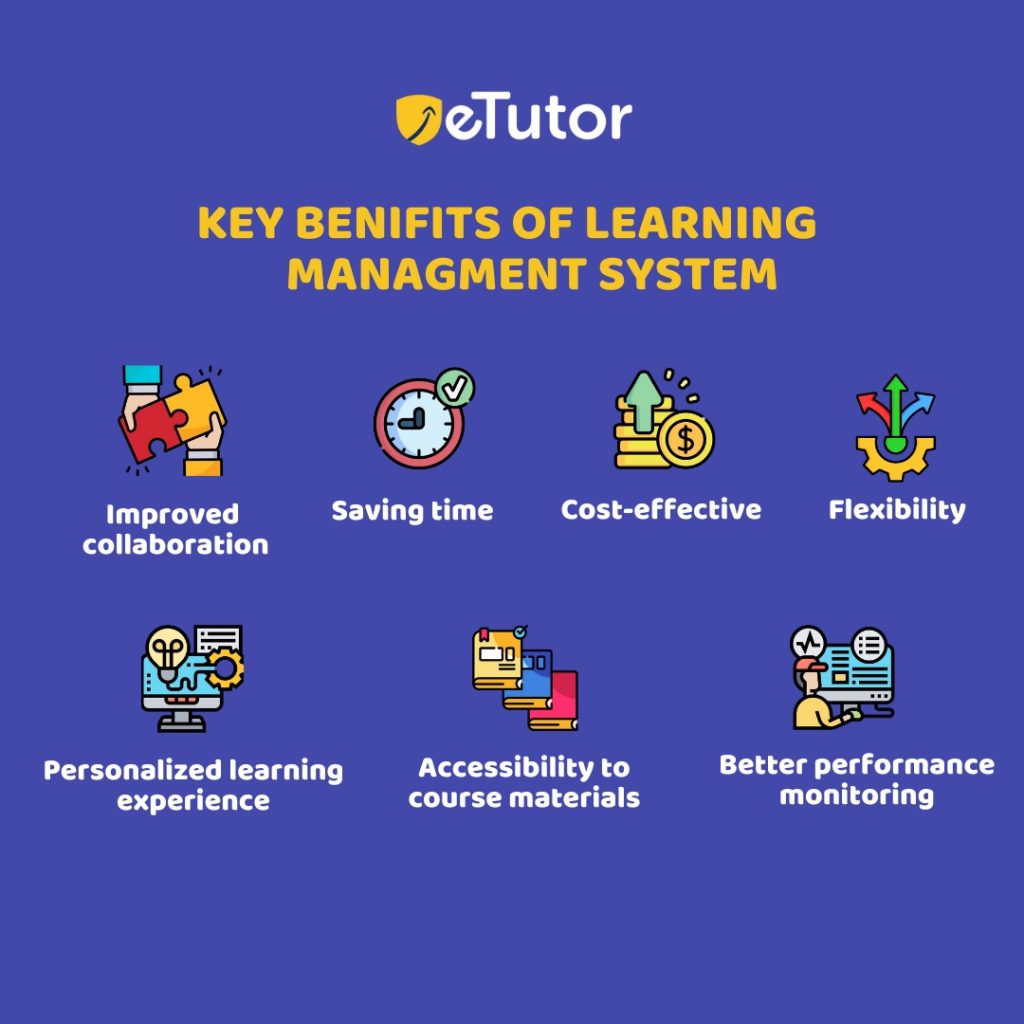
An education learning management system (LMS) has the following advantages:
Personalized Learning Experience: An LMS provides a tailored learning experience by offering pertinent content, multimedia, and engaging educational activities that raise student engagement and achievement.
Improved Collaboration: An LMS makes it possible for teachers and students to work together in real-time, enhancing communication and giving them a place to ask questions, assignments, and student progress.
Saving time: Saving time by automating administrative activities like grading, attendance monitoring, and record keeping, an LMS frees up instructors’ time to concentrate on instruction.
Accessibility to Course Materials: An LMS makes it simple for students to learn at their speed by enabling them to access teaching materials at any time, from any location, on any internet connected device.
Better Performance Monitoring: An LMS offers analytics and reporting capabilities to monitor student progress, spot learning gaps, and modify the curriculum as necessary.
Cost-Effective: An LMS lowers expenses related to conventional classroom-based education, such as those related to textbooks, printing, and other resources.
Flexibility: An LMS allows for synchronous or asynchronous training, self-paced learning, and blended learning, among other delivery methods.
Types of Education Learning Management Systems
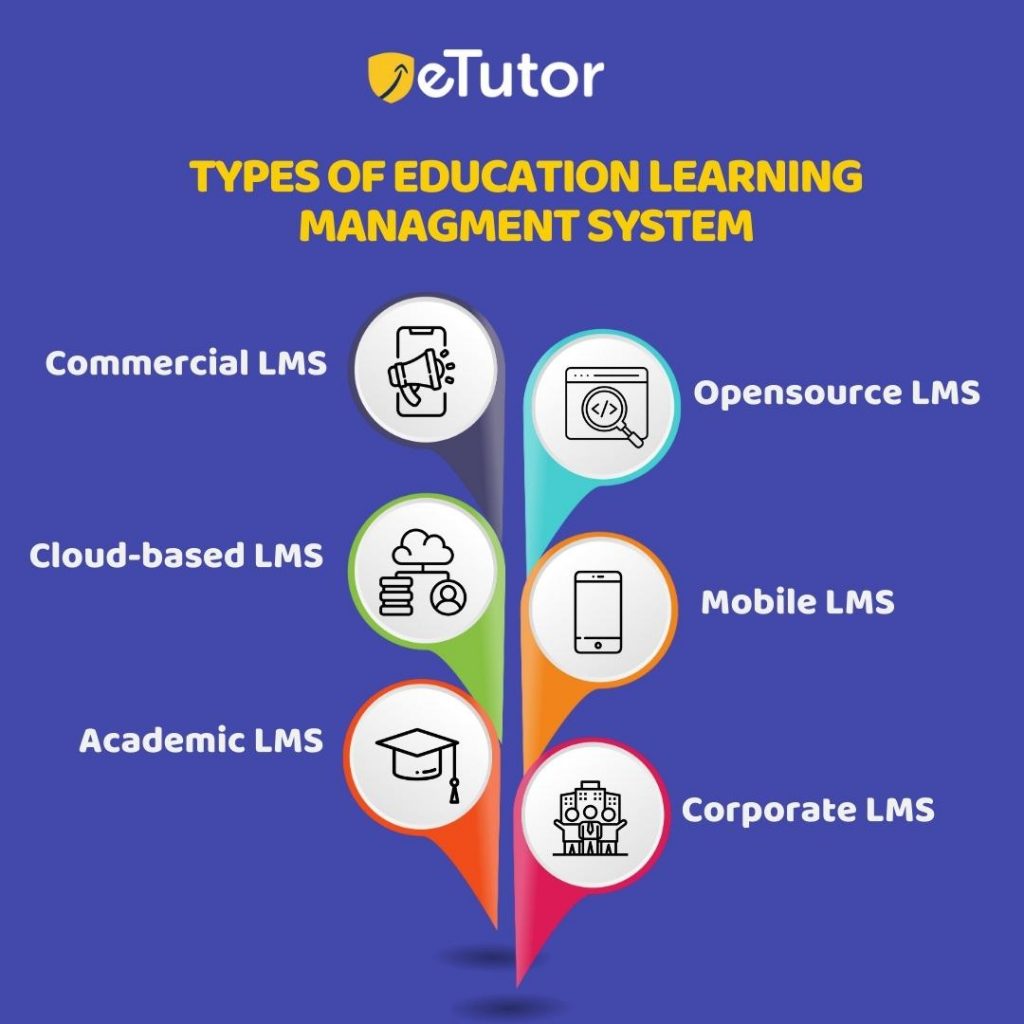
The different types of education LMS are:
Commercial LMS: A commercial LMS is a learning management system created and offered for sale by companies that sell software. They frequently include many adjustable features and may have tools for managing communication, exams, and course content.
Open Source LMS: An open-source learning management system that is free and may be customized to meet certain needs. These systems may receive support from user groups and are frequently led by the community.
Cloud-Based LMS: A cloud-based learning management system can be accessed by students using a web browser. It is housed in the cloud server.
Mobile LMS: A learning management system (LMS) for mobile devices is a mobile learning LMS. With the possibility of accessing course materials, tests, and other tools from their mobile devices, it offers customers on the road an optimum learning experience.
Academic LMS: An academic learning management system (LMS) is a form of LMS created for educational organizations like schools, and colleges. It offers resources like content materials, videos, images, whiteboard presentations, etc.
Corporate LMS: corporate LMS is intended to be utilized in corporate training initiatives. It offers resources for administering tests, conducting evaluations, and maintaining personnel data.
How to Choose the Right Education LMS for Your Institution
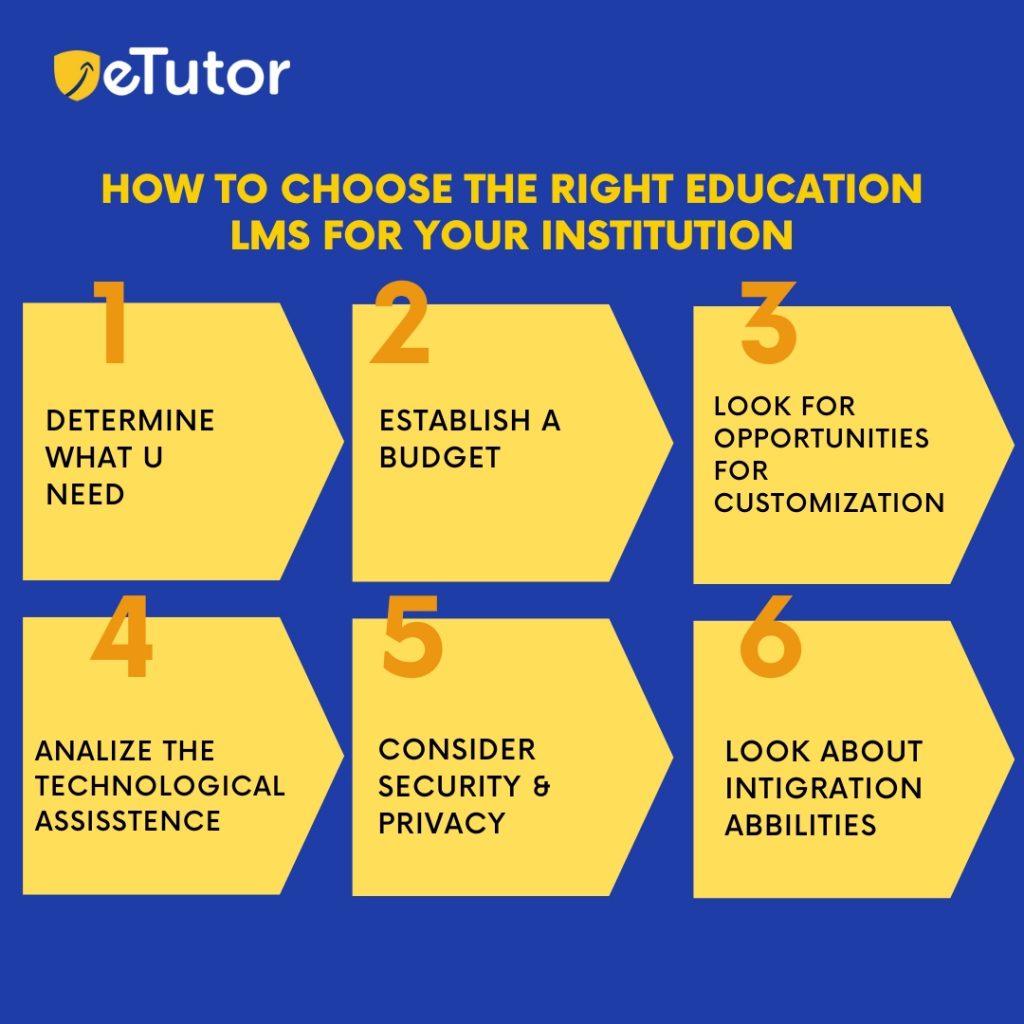
A key decision which could affect the educational level that your institution offers, and the overall experience of learners and instructors, is choosing the most suitable learning management system (LMS). When selecting the best LMS for your institution, consider the following factors:
Determine what you need: Determine the essential characteristics crucial to your institution.
Establish a budget: When comparing LMS choices, consider your budget. Choose if you require an on-premises or cloud-based solution, a free or open-source LMS, or a subscription service.
Look for opportunities for customization: Check to see if the LMS may be modified to suit the branding and requirements of your institution.
Analyze the technological assistance: Technical support is crucial when using an LMS. Make sure the LMS vendor offers dependable and accommodating technical support.
Consider security and privacy: When utilizing an LMS, security and privacy are essential.
Look about integrating abilities: Check to see if the LMS could be integrated with any of your existing online exam software or Education Mangement System.
TIP: TRY eTutor
Etutor Learning management system is a software is a user friendly application. It Comes With Fully Customizable Education LMS Platform With Top-Notch Feature.
How Can an Education LMS Improve Student Learning Outcomes?
An Education Learning Management System (LMS) can improve student learning outcomes by providing personalized learning paths, quick access to resources, data-driven insights, flexibility, and assessment feedback.
Conclusion:
An educational learning management system is a robust platform transforming how students learn, and teachers teach. Moreover, e-tutor LMS can enhance learning outcomes by delivering tailored learning experiences, encouraging collaboration, and enhancing accessibility and flexibility.
Frequently Asked Questions
Author: Saritha Reddy
Website: https://www.etutor.co
Recent Posts
- NTA-Based Hybrid Assessment Software for IIT-JEE Mains, Advanced & NEET
- eTutor Offline Exam Software for IIT-JEE, NEET, and Foundation with Student Performance Analytics
- NEET Test Generator for Academies & K-12 Schools
- How School ERP Software Maximizes Productivity and Minimizes Cost
- How Does ERP Software for Schools Help Educators?
